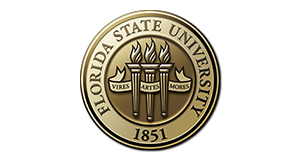University Communications
Westcott Building
222 South Copeland Street
Tallahassee, FL 32306
Media Relations:
850-644-4030
Response To NYT Story
The university expresses its deep disappointment in the New York Times' April 16 story alleging FSU officials did not properly investigate a rape allegation against FSU student Jameis Winston "in apparent violation of federal law." It also vigorously objects to the newspaper's characterization of the university as being uncooperative in explaining its actions.
The university provided the newspaper with a general statement (below) and numerous written answers over a period of weeks. Most of the responses were left out of the story, giving readers an incorrect impression of the university's efforts on behalf of sexual assault victims under Title IX.
Among the points FSU emphasized but were either missing or downplayed in the NYT article:
- FSU does not tolerate sexual assault. Even one sexual assault is a problem. Like other colleges and universities that are grappling with this issue, we actively provide programs and educate students on safe behavior, the meaning of consent and how to properly report cases of sexual misconduct. Contrary to the article's over-arching theme, FSU takes this matter seriously.
- State and federal privacy laws govern the university's ability to comment on a particular student or disciplinary matter. This is particularly crucial in cases of sexual assault, where victims may request privacy to heal. To interpret the university's silence as a lack of interest or an insufficient "level of energy" is utterly wrong.
- The university must balance its duty to investigate sexual assault cases with the welfare of the victim. Many students who contact the Victim Advocate Program make it clear they are only seeking counseling and academic accommodations. They either decline or want to delay the decision to go forward with university or criminal proceedings. Guidance from the U.S. Dept. of Education (April 2011 "Dear Colleague" letter) makes it abundantly clear that the university needs to take these wishes into account. To rush victims or disregard their wishes not to proceed would be re-traumatizing and hinder their recovery.
- Nevertheless, as part of its services to victims, the Victim Advocate Program always advises its clients about the option to file a criminal or Code of Conduct complaint or both. Advocates often explain the option more than once and even offer to support the victim through every step of the process, including accompanying the victim to the police station or a student Code of Conduct hearing.
- The article also failed to explain the extent of the other services offered by the university's victim advocates, who are trained and dedicated professionals providing 24-hour, on-call assistance to victims. Among the services are finding a victim or family members a safe place to stay; making referrals to counselors; re-arranging class schedules to accommodate the victim's needs; contacting professors to reschedule exams; finding accommodations for the victim's roommates; planning social accommodations; helping victims drop classes or get copies of their transcripts; and providing support and resources to family members. These accommodations are precisely the type of actions contemplated by the "Dear Colleague" letter and are offered to every victim.
- The Victim Advocate Program operates under a statute unique to Florida that gives all rape crisis counselors a confidentiality privilege. Advocates cannot breach this confidentiality--even to talk to police--without a waiver from the client.
- In the case examined by The Times involving Jameis Winston, no university official outside the Victim Advocate Program received a report from any complainant naming Winston prior to when the allegations were made public in November 2013.
- At no time has there been or is there now a complaint on record from a student referred to by the State Attorney's Office. The university has been aware of the information in The Times article, however, and has fulfilled all of its legal obligations under Title IX.
- The paper's suggestion that FSU underreports sexual assaults is misleading. The campus statistics used by The Times to make that point do not account for the crucial fact that 83 percent of FSU's students live off-campus, where incidents are handled by the Tallahassee Police Department and are not required to be reported as part of the university's annual campus crime statistics. Despite this, the university provides full victim services to any student regardless of where he or she lives.
The Times has done its readers, as well as the FSU community, a disservice by omitting these answers and by seriously misrepresenting the university's concern and care for its students who are victims of sexual assault.
FSU STATEMENT PROVIDED NYT PRIOR TO 4.16.2014
Following is the full statement the university gave The New York Times prior to today's article:
Like all other colleges and universities, FSU is faced with a balancing act when following the "Dear Colleague" letter. The need to investigate possible harassment must be balanced against the rights of and consent from the complainant. As the letter states: "If the complainant requests confidentiality or asks that the complaint not be pursued, the school should take all reasonable steps to investigate and respond to the complaint consistent with the request for confidentiality or request not to pursue an investigation."
Given the inherent tension within the "Dear Colleague" letter, FSU seeks to empower victims by giving great weight to their wishes when it comes to counseling, academic accommodations and supporting them through criminal or university proceedings. In a great number of cases, the victims make it quite clear that they don't want to file a police report or pursue a Code of Conduct process.
FSU's Title IX/Code of Conduct process has worked well for the vast majority of sexual assault cases. The process has provided victims with the emotional and procedural help they need, and the university has handled dozens of cases over the years that have resulted in the discipline of respondents.
